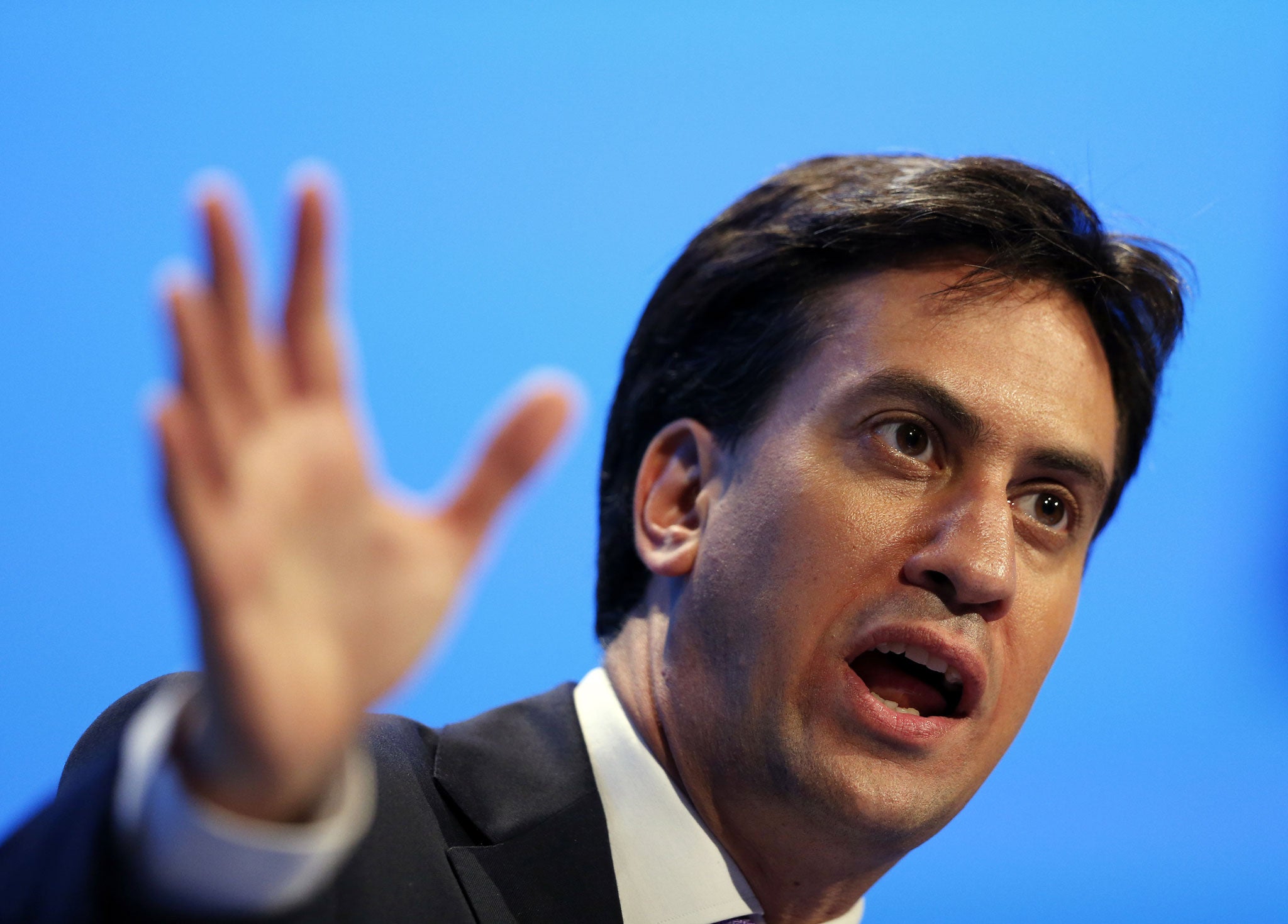It is not for Ed Miliband to get involved with Everyday Sexism and No More Page Three
Supporting these campaigns is merely a weak clawing at popularity, let's tackle politicians on how they will deliver real change

I don’t care what Ed Miliband thinks about page three. Not because I think it’s not derogatory, or doesn’t promote sexist attitudes, but because I think there are more important issues for politicians to tackle.
When Ed Miliband was asked about it on 5live yesterday, the question pegged on his Labour conference speech where he vowed to tackle the ‘violence, harassment, and everyday sexism’ that women still face in British society - I assume page three comes under the latter.
I don’t like page three, it’s neither edifying nor tasteful and the concept is completely outdated. In fact, I agree with Ed Miliband, when he says it is a total anachronism.
But just like Miliband aligning himself with the Everyday Sexism project, backing this popular campaign is essentially meaningless in isolation and his support of it must not be fed by empty questions from the media.
Are things like ‘Everyday Sexism’ and no more page three really something for politicians to get involved with in the first place? Clearly many already have. More than a quarter of Labour MPs have signed the petition against page three, as well as 11 Conservative MPs and 16 Lib Dems. At the Labour conference a number of MPs met to discuss ‘Everyday Sexism.’
But supporting these popular campaigns comes across like a weak clawing at popularity, a kind of ‘see I know what people on the Internet talk about’ pointer, when they are used for political gain.
The popularity of the no more page three campaign is arguably driven by confused motives on the part of some supporters too. From comments made both on the site and on social media it is not clear how many signatories hate page three or just hate the Sun, or Murdoch, or phone hacking. Or even just David Cameron. And, sexism aside, there are other complications in politicians backing no more page three, most especially the freedom of the media.
Ed Miliband can’t back a fight against ‘Everyday Sexism’ either because it’s not clear exactly what this constitutes.
A first glance at the project's Twitter account (this campaign began primarily on the social network before the concept snowballed) appears that they highlight the daily displays of discrimination that go under the radar.
Everyday sexism is a particularly ugly pattern on the ‘wallpaper’ of society, a prejudice that needs to be pointed to to be seen more clearly.
Examples of everyday sexism retweeted to the account’s 100,000 followers in the past two weeks include
“Always a little bit depressing how much attention is given to what politicians' wives are wearing”
“Two guys behind me at bar, loudly discussing how tall I was - they 'generally preferred small birds' but I was 'quite sexy'”
As well as highlighting these comments, Everyday Sexism retweet some truly horrifying examples of women who say they have been groped in public, touched up at the bus stop or had their bum smacked in a supermarket.
This is assault and should always be reported. The message behind the campaign does a great job in raising awareness, that you can report it, and that you have a right to be taken seriously. I commend Everyday Sexism for their role in this.
Yet if you are a politician I don’t think you should equate a criminal offence with an off-colour remark. I don't think its helpful for policy either.
Assault doesn't and shouldn’t fall into an 'everyday sexism' bracket, though it may be motivated in part by harmful attitudes.
Assault is always a matter for the police and if someone's behaviour is making you feel uncomfortable on a bus, or in a public place, you need to report it. Officers need to know about this person to help keep the whole community safe.
A complex relationship of issues are highlighted by the voices these campaigns give a platform to and it is up to politicians to untangle these and target each of them in turn.
These projects began with people power and give a platform to a number of different voices which look at different things.
The popularity of the campaigns themselves are indicative of greater structural issues within society that should be tackled.
Politicians should focus on changing that framework, not piggybacking on the popularity of the campaign itself.
Labour has vowed to create a “national champion” for victims of rape and domestic violence, amid claims that women are less safe under the coalition because of police and local authority cuts.
Labour is also planning a huge expansion of free childcare, another important policy, given that figures show women are still struggling to break the “glass ceiling” after having a family.
Let's stop asking politicians about page three and start putting pressure on them on how they will deliver these promises.

Join our commenting forum
Join thought-provoking conversations, follow other Independent readers and see their replies